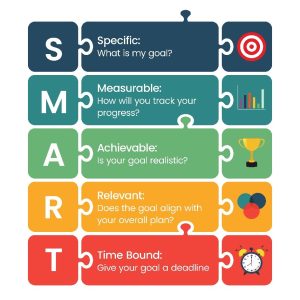
A Comprehensive Guide to Mastering Self-Motivation: Strategies for Achieving Peak Performance
Ever find yourself spiraling into an abyss of lackluster energy, where even the simplest tasks seem impossible? You’re not alone. Staying motivated, especially consistently, is a challenge for many, from students and professionals to creatives and entrepreneurs. This blog post is designed to tackle this dilemma head-on. We’ll explore practical strategies that reignite your drive and transform how you approach your daily tasks and long-term goals. Whether you need a nudge to start a project or fuel to keep going, you’ll discover how to harness your inner strength and stay committed to your pursuits.
Understanding Motivation
Motivation serves as the driving force behind our actions, initiating, guiding, and maintaining goal-oriented behaviors. It underpins human behavior and is crucial for personal and professional development. Understanding motivation can significantly impact one’s ability to achieve success and fulfillment in various aspects of life.
Definition and Importance of Motivation
Motivation is defined as the inner drive that compels individuals to take action towards a specific goal or outcome. It is the force that energizes behavior and sustains momentum, even in the face of challenges. Motivation plays a vital role in determining the level of effort and persistence individuals exert to achieve their objectives.
The importance of motivation lies in its ability to inspire individuals to set and pursue meaningful goals, overcome obstacles, and persevere through setbacks. Motivated individuals are more likely to exhibit resilience, creativity, and a proactive mindset, leading to increased productivity and success in their endeavors.
Intrinsic vs. Extrinsic Motivation
Intrinsic motivation stems from internal factors such as personal satisfaction, interest, or enjoyment derived from the task itself. This form of motivation drives individuals to engage in activities for the inherent rewards they offer, without the need for external incentives. For example, a student who loves painting for the sheer joy of creativity is intrinsically motivated.
On the other hand, extrinsic motivation arises from external rewards or incentives, such as money, praise, or recognition from others. Individuals driven by extrinsic motivation engage in activities to earn external rewards or avoid punishments. For instance, an employee working hard to receive a promotion is extrinsically motivated.
Understanding the distinction between intrinsic and extrinsic motivation is essential for harnessing individuals’ drive and aligning incentives with desired outcomes in various contexts.
The Science Behind Motivation
The science of motivation delves into the intricate workings of the human brain and the role of neurotransmitters such as dopamine and serotonin in regulating motivational behavior. Dopamine, often referred to as the “feel-good” neurotransmitter, plays a crucial role in the brain’s reward system, reinforcing behaviors that lead to pleasurable outcomes.
Serotonin, another neurotransmitter, influences mood, emotions, and motivation, contributing to feelings of well-being and satisfaction. These neurotransmitters interact with brain regions responsible for decision-making, goal-setting, and emotional processing, shaping individuals’ motivation levels and behaviors.
Understanding the neural mechanisms underlying motivation provides valuable insights into how individuals perceive and respond to incentives, drive goal-directed actions, and regulate their behavior to achieve desired outcomes. By unraveling the science behind motivation, we gain a deeper appreciation for the complex interplay of biological and psychological factors that motivate human behavior.
For further exploration on motivation, you can refer to Motivation: The Driving Force Behind Our Actions and Understanding motivation | OpenLearn.
Factors Influencing Motivation
Understanding the factors that influence motivation is essential for maintaining a driven and positive mindset towards achieving your goals. By recognizing these key elements, you can leverage them to enhance your motivation levels and propel yourself towards success.
Setting Clear Goals
Setting clear and well-defined goals is crucial in sustaining motivation. Utilizing the SMART criteria – Specific, Measurable, Achievable, Relevant, and Time-bound – can guide you in creating objectives that are clear and attainable. By breaking down larger goals into smaller, manageable tasks, you can track your progress and celebrate incremental achievements, boosting your motivation along the way. This structured approach provides a sense of direction and purpose, fueling your drive to stay on course towards your desired outcomes.

Overcoming Procrastination
Procrastination can be a significant barrier to motivation. To overcome this challenge, implement practical strategies such as time blocking, prioritizing tasks, and breaking down projects into smaller steps. By tackling tasks gradually and focusing on one task at a time, you can avoid feeling overwhelmed and maintain momentum. Cultivating a habit of starting with the most daunting task first can set a positive tone for the rest of your day, keeping procrastination at bay and motivation high.
Creating a Supportive Environment
The environment in which you work or spend your time plays a vital role in influencing your motivation levels. Designing a supportive and inspiring environment can enhance your focus and drive. Consider organizing your workspace to reduce distractions, incorporating elements that inspire you, such as motivational quotes or personal affirmations, and surrounding yourself with like-minded individuals who encourage and support your goals. By curating a space that cultivates positivity and ambition, you can boost your motivation and productivity.
Self-Discipline and Routine
Self-discipline and establishing a consistent routine are key factors in maintaining motivation over the long term. By developing habits that promote self-discipline, such as setting daily rituals, prioritizing tasks, and practicing mindfulness, you can strengthen your focus and resilience. Creating a structured routine that includes dedicated time for goal-oriented activities helps instill a sense of purpose and commitment. Over time, adhering to a routine becomes second nature, reinforcing your motivation and amplifying your productivity levels.
By considering these influential factors and implementing strategies to address them, you can cultivate a sustainable motivation mindset that propels you towards achieving your aspirations. Embrace the power of clear goal-setting, proactive measures against procrastination, a conducive environment, and consistent self-discipline to optimize your motivation journey. Stay committed to refining these aspects, and watch as your motivation levels soar, driving you closer to your desired outcomes.
Techniques for Sustaining Motivation
Finding ways to sustain motivation is crucial in achieving your goals and staying focused on your aspirations. Let’s delve into some effective techniques that can help you maintain high levels of motivation over time.
Visualization and Affirmations
Visualization and affirmations play a significant role in boosting motivation levels. By visualizing your desired outcomes and affirming positive statements about yourself and your goals, you can create a powerful mindset that fuels your motivation. When you vividly imagine yourself succeeding and affirm your capabilities, you activate your subconscious mind to work towards turning your vision into reality. This practice not only enhances motivation but also instills confidence and a sense of self-belief.
Reward System
Implementing a reward system can be a highly effective way to stay motivated. By setting up a system where you reward yourself for achieving milestones or making progress towards your goals, you create a sense of anticipation and enjoyment in the journey. Rewards act as incentives that keep you focused and driven to accomplish tasks, making the process more engaging and satisfying. Whether it’s treating yourself to something you enjoy or acknowledging your achievements, incorporating a reward system can help sustain your motivation in the long run.
Mindfulness and Meditation
Practicing mindfulness and meditation can greatly contribute to enhancing your motivation and focus. By engaging in mindfulness activities that promote awareness of the present moment and meditation techniques that calm the mind, you cultivate a sense of clarity and mental resilience. These practices not only reduce stress and distractions but also sharpen your concentration and determination. By incorporating mindfulness and meditation into your daily routine, you can boost your overall motivation levels and maintain a balanced mindset to tackle challenges effectively.
Continuous Learning and Growth
Emphasizing continuous learning, skill development, and personal growth is key to maintaining motivation. Engaging in activities that expand your knowledge, enhance your skills, and push you out of your comfort zone encourages a growth mindset that keeps you motivated to achieve more. By seeking new opportunities for learning and challenging yourself to grow, you not only stay inspired and enthusiastic but also build the confidence to take on new endeavors. Investing in your personal growth journey serves as a driving force for continued motivation and progress towards your goals.
Incorporating these techniques into your daily routine can help you sustain high levels of motivation and stay on track towards realizing your aspirations. By combining visualization and affirmations, a rewarding system, mindfulness practices, and a focus on continuous learning and growth, you can cultivate a strong foundation for lasting motivation and success.
Dealing with Setbacks
Facing setbacks is a natural part of any journey towards achieving goals. It’s crucial to approach setbacks with a mindset that allows for growth and adaptation. Acceptance and resilience play a significant role in how we respond to obstacles that may challenge our motivation.
Acceptance and Resilience
When setbacks occur, acknowledging and accepting the situation without blaming oneself is the first step towards overcoming them. Rather than dwelling on what went wrong, focusing on building resilience can help in bouncing back stronger. As Elle Kaplan suggests, embracing setbacks as part of the journey can empower individuals to navigate through challenges effectively.
Learning from Failures
Failures are valuable learning opportunities that can fuel motivation. Understanding what went wrong, the lessons gained from setbacks, and the improvements needed can turn failures into stepping stones towards success. As highlighted in an article by CNBC, leveraging setbacks as learning experiences can drive personal growth and professional development.
Seeking Feedback and Adjusting Goals
Feedback from others can provide valuable insights into areas that require improvement. Being open to feedback, whether constructive or critical, allows individuals to adjust their goals and strategies accordingly. Staying adaptable and flexible in goal setting is essential to maintain motivation and progress despite setbacks. According to Ionos, acknowledging setbacks, refraining from blame games, and adjusting goals can lead to successful outcomes.
Navigating setbacks with a mindset focused on acceptance, learning, and adaptability can empower individuals to persevere through challenges and stay motivated on their path to success.
Conclusion
In conclusion, staying motivated is a fundamental aspect of achieving success in any endeavor. By setting clear goals, maintaining a positive mindset, and implementing effective time management strategies, individuals can overcome obstacles and stay on track towards their objectives. It is essential to remember that motivation is not always constant and may require regular reinforcement through self-reflection and seeking inspiration from others. By incorporating these strategies into daily routines, individuals can cultivate long-lasting motivation and drive to reach their full potential. Remember, motivation is the key to unlocking endless possibilities and achieving remarkable results.
